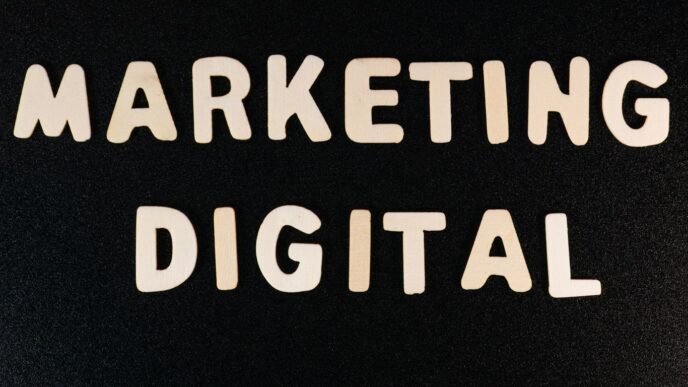Getting to know yourself is a big deal. It’s not always easy, and sometimes it feels like you’re staring into a mirror and not really seeing anything new. But asking yourself the right questions? That can really change things. It’s like finding a hidden map to your own mind and heart. We’re going to look at some questions that can help you figure out what makes you tick, what you’re good at, and what makes you, well, you. It’s all about understanding yourself better, no fancy stuff involved.
Key Takeaways
- Understanding your core values helps guide your decisions and actions, leading to a more authentic life.
- Identifying your strengths and areas for growth is key for personal and professional development.
- Knowing how you react to stress and managing your energy levels are important for emotional balance.
- Exploring your passions and what brings you joy contributes to a sense of purpose and fulfillment.
- Regularly asking yourself questions about your thoughts, beliefs, work, and relationships can lead to significant personal growth.
Understanding Your Core Values
Figuring out what really matters to you is a big part of knowing yourself. Your core values are like your internal compass, guiding your decisions and how you show up in the world. They’re not just abstract ideas; they’re the principles you live by, even if you don’t always think about them. When your actions line up with your values, life usually feels more settled and purposeful. But when there’s a mismatch, that’s often when things start to feel off.
What Are My Core Values?
This is about getting down to what’s truly important to you. Think about the times you felt really proud of yourself or when you stood up for something. What principles were you following then? Also, consider what makes you genuinely angry about the world – often, that anger points to a value that’s being violated. It’s helpful to jot down a list of words that represent these guiding principles.
How Am I Honoring My Values Daily?
Knowing your values is one thing, but living them is another. Take a look at your typical day. Are you making choices, big or small, that reflect what you say you care about? It might be something like making time for family if ‘connection’ is a value, or being honest in your dealings if ‘integrity’ is key. It’s easy to let things slide, so a regular check-in is useful. Maybe keep a small journal for a week and note down instances where you either lived your values or felt you missed the mark.
What Bold Action Can Align Me Closer to My Values?
Sometimes, we know we’re not quite living in sync with our values, but we don’t know what to do about it. This question pushes you to think about a concrete step, even a small one, that would make a difference. It doesn’t have to be a massive life change. Maybe if ‘creativity’ is a core value, the bold action is simply signing up for that art class you’ve been thinking about. Or if ‘health’ is important, it might be committing to a morning walk three times a week. What’s one thing you can do, starting soon, that would bring your actions more in line with what you truly believe in?
Exploring Your Strengths and Growth Areas
Sometimes we get so caught up in what we should be doing, or what everyone else seems to be doing, that we forget to look at what we’re actually good at. It’s easy to focus on the things we struggle with, but really digging into your strengths can be a game-changer. It’s not about bragging; it’s about understanding your natural talents and how you can use them more effectively.
What Are My Greatest Strengths?
Think about times when you felt really capable, when things just seemed to click. What were you doing? What skills were you using? It might be something obvious like public speaking, or something quieter like really listening to someone or organizing a chaotic space. Don’t discount the things that come easily to you – those are often your biggest strengths. Maybe you’re great at problem-solving, or perhaps you have a knack for making people feel comfortable. Identifying these can help you lean into them more. For a structured way to think about this, you could try a self-analysis method to understand and leverage these traits.
What Are My Key Growth Areas?
Okay, so we all have things we could work on. Instead of seeing these as failures, think of them as opportunities. What tasks do you tend to put off? What feedback have you received that you might have initially brushed aside? It could be anything from time management to being more assertive. The goal here isn’t to become perfect, but to be aware and make small, consistent efforts to improve in areas that matter to you.
When Was The Last Time I Felt Truly Strong and Capable?
This question is about tapping into those moments of genuine confidence. When did you feel like you were really in your element? What were the circumstances? Was it a specific project at work, helping a friend, or even mastering a new recipe? Recalling these instances can remind you of your capabilities and give you a boost when you’re feeling down. It’s a good way to see what activities or situations bring out the best in you.
Navigating Emotions and Reactions

Sometimes, it feels like our emotions are running the show, right? We all have those days where something small sets us off, or we just feel… off, and we can’t quite pinpoint why. Understanding how we react to things, especially when we’re stressed or things aren’t going our way, is a big part of knowing ourselves better. It’s not about judging these reactions, but more about noticing them and figuring out what’s behind them.
How Do I React to Stress?
When things get tough, what’s your go-to response? Do you shut down, lash out, or maybe try to fix everything at once? Think about the last time you felt really overwhelmed. What did you do? Did you notice any physical signs, like a tight chest or a racing heart? It’s helpful to jot these down. For instance:
- When stressed, I tend to:
- Become quiet and withdrawn.
- Overthink minor details.
- Seek out comfort food.
- Physical signs I notice:
- Headaches.
- Tense shoulders.
- Difficulty sleeping.
It’s important to recognize these patterns so you can manage them better.
What Emotion Dominated My Day?
At the end of the day, take a moment to think about the main feeling that was present. Was it frustration from a work email? Joy from a good conversation? Or maybe a mix of things? Try to name the dominant emotion. Sometimes, just identifying it can lessen its power. You might find that certain situations consistently bring up the same feelings.
What Drains My Energy and What Replenishes It?
We all have things that zap our energy and things that give us a boost. Maybe a long meeting leaves you feeling drained, but a walk in the park recharges you. Or perhaps spending time with certain people tires you out, while quiet time alone energizes you. Making a list can be really eye-opening:
- Energy Drainers:
- Constant notifications.
- Unresolved conflicts.
- Feeling rushed.
- Energy Replenishers:
- Listening to music.
- Talking to a close friend.
- Reading a book.
Knowing these helps you make choices that support your well-being.
How Do I Handle Conflict?
Conflict is a part of life, and how we deal with it says a lot about us. Do you avoid it at all costs? Do you confront it head-on, maybe too aggressively? Or do you try to find a middle ground? Consider a recent disagreement. How did you approach it? What was the outcome? Understanding your conflict style can help you communicate more effectively and maintain healthier relationships.
Uncovering Motivations and Passions
Sometimes it feels like we’re just going through the motions, right? Like, what’s really driving us day to day? Digging into what makes us tick, what lights us up, is a big part of figuring out who we are. It’s not always obvious, and that’s okay. We all have things that get us out of bed in the morning, and sometimes those things change.
What Makes Me Happy and Brings Me Joy?
Think about those moments, big or small, where you felt genuinely happy. What were you doing? Who were you with? What was the environment like? It’s easy to get caught up in what we should be doing, but this is about what actually feels good. Maybe it’s a quiet morning with a cup of coffee, a lively conversation with a friend, or finishing a challenging project. Jotting these down can paint a picture of what truly nourishes your spirit.
What Am I Passionate About?
Passion isn’t just for artists or activists. It’s that deep interest, that thing you could talk about for hours or lose track of time doing. What topics do you find yourself drawn to? What problems in the world bother you enough that you want to do something about them? It could be anything from learning about ancient history to figuring out how to grow the best tomatoes. Identifying these passions is like finding your internal compass.
What Would I Do For Free?
This question gets to the heart of what you value beyond a paycheck. If money were no object, what activities or work would you still choose to do? This isn’t about being unrealistic; it’s about recognizing the activities that provide intrinsic reward. What tasks feel less like work and more like a natural expression of yourself? Sometimes, the things we’d do for free are the very things that could lead to a more fulfilling career or a deeply satisfying hobby.
What Part of Myself Am I Not Seeing Clearly?
We all have blind spots. There might be talents we downplay, interests we ignore, or even parts of our personality that we keep hidden, even from ourselves. This question encourages you to look for those hidden pieces. Are there things people compliment you on that you dismiss? Are there activities you shy away from because you think you won’t be good at them? Being honest here can reveal untapped potential and areas for growth that you might have overlooked.
Examining Thoughts and Beliefs
Our minds are constantly buzzing with thoughts, and often, we don’t even realize the beliefs that are shaping them. It’s like having a background program running that influences everything we do. Taking a moment to look at what’s going on upstairs can be pretty eye-opening. It’s not about judging yourself, but more about getting curious about the mental landscape you inhabit.
What Recurring Thoughts Occupy My Mind?
Think about it – what thoughts pop up most often? Are they worries about the future, replays of past conversations, or maybe a running commentary on your to-do list? Sometimes, just noticing these patterns is the first step. You might find a lot of your mental energy is spent on things you can’t control, or perhaps you’re stuck in a loop of self-criticism. It’s helpful to jot these down for a week. You might be surprised by what you find. For instance, I noticed I spent a good chunk of time each day worrying about whether I’d remembered to secure a URL for a project, even though it was already done. Silly, right?
How Do My Thoughts Influence My Well-being?
Thoughts aren’t just floating around; they have a direct impact on how you feel, both emotionally and physically. If you’re constantly thinking, "I can’t do this," you’re probably going to feel pretty down and unmotivated. On the flip side, if you can shift your thinking to something like, "This is challenging, but I can try," you’re more likely to feel a sense of possibility. It’s a chain reaction. Your thoughts affect your mood, your energy levels, and even how you interact with others.
Are There Limiting Beliefs I Need to Challenge?
We all have them – those quiet assumptions about ourselves or the world that hold us back. Maybe you believe you’re not creative enough, or that asking for help is a sign of weakness. These beliefs often stem from past experiences or things we’ve been told. The trick is to identify them. Ask yourself: Is this belief actually true? Where did it come from? What would happen if I didn’t believe this anymore? Challenging these can feel tough, but it’s where real growth happens.
What Are My Deeply Held Beliefs About Myself?
This goes a bit deeper than just surface thoughts. What do you fundamentally believe about your worth, your capabilities, and your place in the world? Are these beliefs positive and supportive, or do they tend to undermine you? Sometimes, we carry around old beliefs about ourselves that just don’t fit anymore. It’s worth spending time with these core beliefs to see if they’re serving you well. If not, it’s time to start rewriting that internal script.
Reflecting on Professional Life
Our jobs take up a huge chunk of our lives, so it makes sense to check in with how we’re feeling about them. It’s not just about the paycheck; it’s about whether the work itself feels right, or if it’s just a way to get through the week. Thinking about your career path and how it fits with your overall life is a big part of knowing yourself better.
Is My Work Enjoyable, and Why or Why Not?
Take a moment to really consider your day-to-day work. Does it spark any interest, or does it feel like a chore? Sometimes, the tasks themselves are fine, but the environment or the people can make all the difference. Other times, it’s the actual work that just doesn’t click with you. Pinpointing what you like and dislike about your job is key to figuring out your next steps. Maybe you’re great at organizing, but hate dealing with customers. Or perhaps you love the creative side but struggle with deadlines. Being honest about this can help you see where you might want to make changes, whether it’s a new role, a different company, or even a complete career shift. It’s worth thinking about what kind of work would make you feel more engaged.
How Do I Manage My Work-Life Balance?
This is a tough one for a lot of us. It’s easy to let work bleed into personal time, especially with technology making us always available. Are you checking emails late at night? Do you find yourself thinking about work during family dinners? It’s important to set boundaries. Think about:
- When do you feel most overwhelmed by work demands?
- What activities outside of work help you truly disconnect and recharge?
- Are there specific times or days when you consistently feel like work is taking over?
Finding a balance isn’t about being perfect, but about making conscious choices to protect your personal time and energy. It might mean saying no to extra projects or setting specific hours when you won’t check work communications. Remember, taking care of yourself outside of work actually makes you better at work.
Do I Find Purpose in My Daily Work?
Beyond just enjoying the tasks, does your job feel like it contributes to something bigger? Purpose can come from many places – helping others, creating something new, or even just doing a job well that you’re proud of. It’s not always about saving the world; sometimes purpose is found in the small, consistent efforts. Ask yourself:
- What impact does my work have, even in a small way?
- Does my work align with my personal values and what I believe is important?
- What aspects of my job, if any, make me feel like I’m making a difference?
If you’re struggling to find purpose, it might be a sign to explore different projects within your current role or to look for opportunities elsewhere that feel more meaningful to you. Sometimes, even small adjustments can help you feel more connected to your work. If you’re looking for ways to improve your professional efficiency, consider looking into some helpful tips for technology professionals to maintain relevance and profitability [aba9].
Deepening Relationship Understanding
It’s easy to get caught up in our own heads, but relationships are a huge part of who we are. Thinking about how we show up with others can tell us a lot. It’s not just about the big stuff, either. Sometimes the small interactions reveal more than we realize.
What Do I Contribute to My Relationships?
This isn’t about keeping score, but more about understanding your role. What energy do you bring? Are you the listener, the planner, the comedian, or something else? Think about the people closest to you. What do they get from interacting with you? It could be support, laughter, or just a listening ear. Being aware of your contributions helps you show up more intentionally.
Here are a few things to consider:
- Emotional Support: Do you offer comfort and understanding when someone is struggling?
- Practical Help: Are you the one who jumps in to help with tasks or problems?
- Joy and Lightness: Do you bring humor or a positive outlook to interactions?
- Honesty and Directness: Do you offer candid feedback when it’s needed?
Who Are My Go-To People When Upset?
When things get tough, who do you naturally turn to? It’s worth thinking about why these specific people come to mind. Are they good listeners? Do they offer practical advice? Or maybe they just distract you effectively? Understanding this can highlight what you need when you’re feeling down and who consistently meets those needs.
Consider these points:
- What specific qualities do these individuals possess that make them your confidantes?
- How do you typically feel after talking to them?
- Are these the same people you go to for celebrations, or is it a different group?
Is There an Unhealthy Relationship I Should Let Go Of?
Sometimes, relationships, even with people we care about, can become draining or even harmful. This isn’t about blame, but about recognizing patterns that don’t serve your well-being. Think about interactions that consistently leave you feeling worse, misunderstood, or depleted. It might be a friend who is always negative, a family member who is overly critical, or even a professional contact who disrespects your boundaries. Recognizing these dynamics is the first step toward making a change, which could mean setting firmer boundaries or, in some cases, distancing yourself.
Keep Asking, Keep Growing
So, we’ve talked about why digging into yourself matters and gone through a bunch of questions to get you started. It’s not always easy to look inward, and sometimes the answers aren’t what you expect. But sticking with it, even when it feels a bit awkward, is how you really start to get a handle on who you are. Think of these questions as tools to help you build a better understanding of yourself. The more you practice asking them, the more you’ll notice how your choices line up with what’s important to you, and how you connect with others. It’s a journey, for sure, but a pretty worthwhile one. Keep exploring, keep questioning, and see where it takes you.
Frequently Asked Questions
What are the most important things to me?
Think about what really matters to you in life. These are your core values, like honesty, kindness, or creativity. Knowing these helps you make choices that feel right.
What am I good at?
Everyone has special talents. What do people compliment you on? What activities make you feel confident and capable? Knowing your strengths helps you use them more.
How do I act when I’m feeling stressed?
When things get tough, how do you usually react? Do you get quiet, lash out, or try to fix it? Understanding this helps you handle stress better next time.
What makes me feel happy and excited?
What activities or experiences bring you pure joy? What do you love doing so much that you lose track of time? These are clues to your passions.
What thoughts keep popping into my head?
Pay attention to the thoughts that repeat in your mind. Are they helpful or unhelpful? Do they make you feel good or bad? This helps you understand your own thinking patterns.
Am I enjoying my job?
Does your work feel meaningful and interesting, or does it drain you? Thinking about this can help you find more satisfaction in your career or decide if a change is needed.














